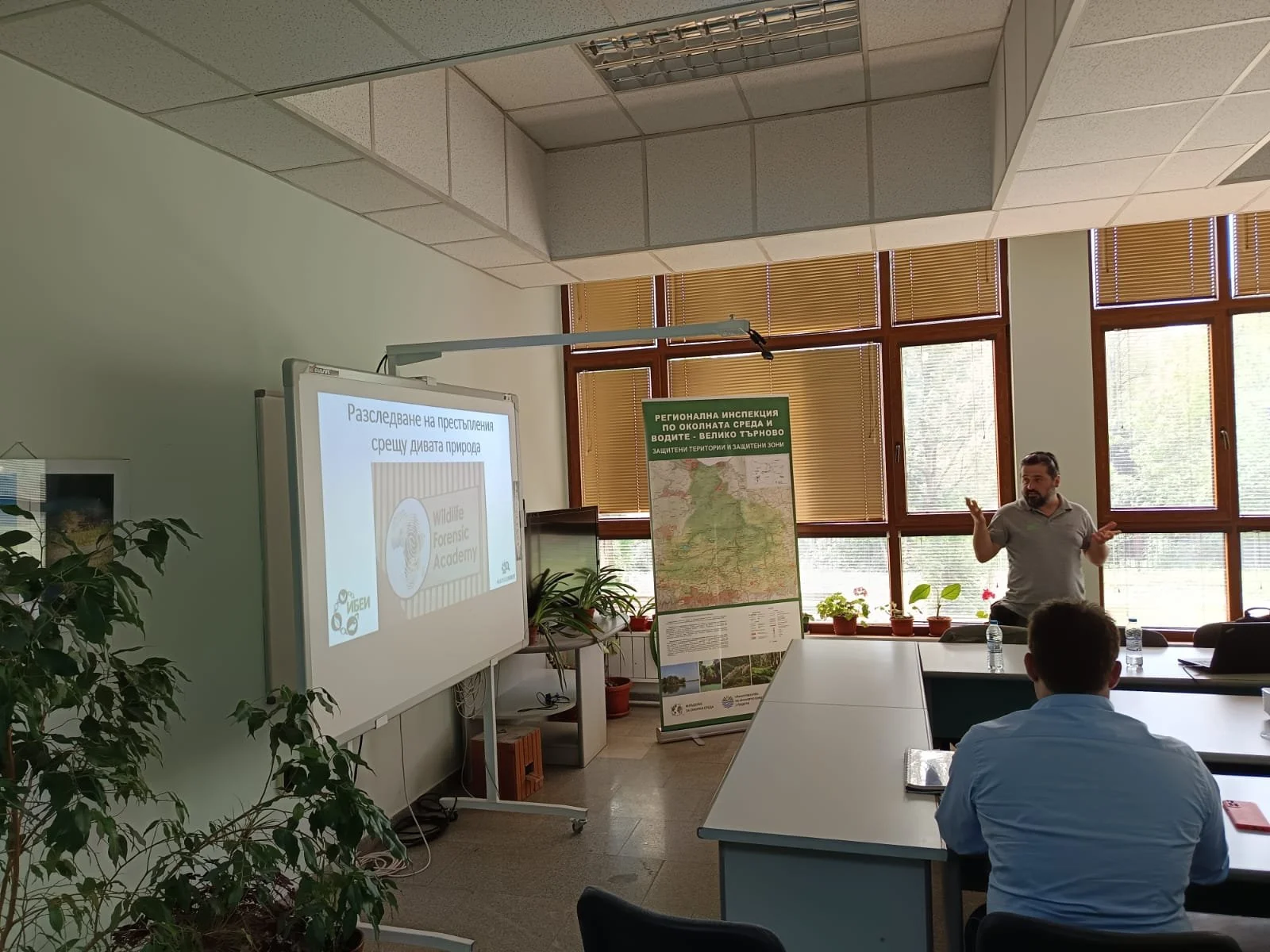From First Response to Legal Evidence: Cross-Sector Training for Wildlife Crime Scenes in Bulgaria
In Bulgaria’s protected areas, environmental crime scenes are often remote, sensitive, and difficult to investigate. To improve the way these sites are recognised, preserved, and processed, a new training initiative supported by the Nature FIRST project and led by its Bulgarian field partners is equipping rangers, police officers, and inspectors with essential forensic knowledge—tailored to Bulgaria’s legal and institutional context.
From South Africa to Bulgaria: Enabling Change Through Forensic Training
The idea for the Bulgarian training emerged after Nature FIRST field partners from the Bulgarian Academy of Sciences (BAS) participated in a Train-the-Trainer programme at the Wildlife Forensic Academy in South Africa. This course, developed and led by Nature FIRST partner and Professor in Forensic and Environmental Science at the University of Staffordshire, Claire Gwinnett, introduced participants to forensic methods from securing a site of environmental crime to presenting evidence in court.
“We wanted to pass on what we learned,” Nikola Doykin, fauna expert at Vitosha Nature Park Directorate and a researcher of the Bulgarian Academy of Science explains. “Not just how to collect evidence, but how to recognise a crime scene, protect it, and understand your legal role within it. That first spark came from the Wildlife Forensic Academy training and we adapted it for Bulgaria.”
Adapting to Legal Realities
One of the greatest hurdles to conservation actors addressing wildlife crime is legal: under Bulgarian law, only police detectives can collect admissible evidence. Rangers, foresters, and protected area staff are legally restricted to observation, but they are often the first to arrive at remote wildlife crime scenes.
To address this, the training emphasizes what these first responders can do: document, photograph, take detailed notes, and preserve the integrity of the site to prevent contamination. If done correctly, this documentation can support court cases and rangers can become powerful eyewitnesses.
“It’s about preparing rangers to become part of the judicial chain—without overstepping legal boundaries,” Nikola, one of the organizers of the training, says. “They may not collect evidence, but they can protect it, describe it, and hold other actors accountable.”
Building a National Network of Environmental Guardians
In the period April-June 2025, some 150 participants have been trained across at least six Bulgarian regions, with about 100 still to come. Participants include representatives from forestry, environmental inspectorates, hunting associations, and police.
Each session is tailored to regional realities, creating not only skills but vital communication channels.
“The best thing is the networking,” the trainer shares. “Now, when something happens, people know who to call. They trust that someone will respond.”
This transformation is not just about technical knowledge, but cultural change: shifting from isolated action to coordinated response, and from legal uncertainty to judicial readiness.
Cooperation Across Ministries and Agencies
One of the biggest challenges was getting agencies—often operating under different ministries—to collaborate. “We had to convince them: you have to work as a team. One collects information, another prepares documentation, another ensures legal follow-up. The whole chain needs to run smoothly.”
This cross-agency approach was especially important in complex jurisdictions where multiple bodies—protected area authorities, foresters, hunting companies, and environmental regulators—may share overlapping responsibilities.
Laying the Groundwork for Legal Reform
The team behind the training isn’t stopping at capacity building. They’re preparing a proposal to change Bulgarian law, allowing trained rangers to officially collect evidence in wildlife crime cases. In remote mountain areas where police may take days to arrive, this could make or break a prosecution.
“In some cases, officers have asked rangers to bring the animal carcass down to the city,” Nikola recalls. “At that point, the crime scene no longer exists. If trained rangers could legally process the scene, it would make a real difference.”
Looking Ahead
The team plans to continue the training beyond the Nature FIRST project, depending on institutional interest and support. Meanwhile, materials are being made available to former participants who want to run sessions for their own teams.
While legislative change will take time, this initiative is already improving how environmental crimes are reported and investigated, both through stronger skills and more reliable collaboration.



